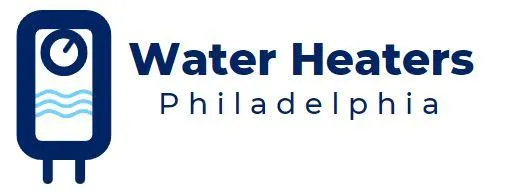Types of Water Heaters: Which is Best for Your Philadelphia Household?
When it comes to choosing a new water heater, the abundance of options can make the decision overwhelming. Traditional tanks, solar units, and tankless models each offer different levels of energy efficiency and hot water capacity. To ensure you make an informed decision based on your family's needs, our comprehensive guide provides an in-depth review of each water heater type. By reading further, you'll gain the knowledge needed to make the right choice. It's important to carefully consider the unique advantages and disadvantages of each type before finalizing your decision.

Traditional Storage Tank Water Heaters
Tank-style water heaters are a widely favored option for effectively heating and storing water in insulated tanks. They utilize gas, electric, or oil as an energy source to heat the water. These units offer a consistent and continuous supply of hot water, ensuring it is readily available whenever you need it with a simple turn of the tap. Tank-style water heaters provide convenience and reliability for your hot water needs.
Pros:
Lower cost: Tank-style water heaters are generally more affordable upfront compared to other types of water heaters. This can make them a cost-effective choice for homeowners on a budget.
Longer warranty periods: Many tank-style water heaters come with longer warranty periods, providing added protection and peace of mind. This can give you confidence in the durability and reliability of the unit.
Ease of maintenance: Maintenance for tank-style water heaters is typically straightforward and doesn't require complex procedures. This can make it easier for homeowners to perform routine maintenance tasks or for professionals to service the unit when needed.
Cons:
High operating expenses: Traditional water heaters are known for their lower energy efficiency compared to other types of water heaters. This can result in higher operating expenses over time, as more energy is required to heat and maintain the water temperature in the tank.
Limited capacity: The size of the tank determines the amount of hot water available at any given time. If the hot water demand exceeds the tank's capacity, there may be a shortage of hot water during peak usage periods. This can be a limitation for larger households or situations where simultaneous hot water usage is high.
Risk of water damage: With tank-style water heaters, there is always a risk of water damage if the tank develops a leak or fails. A leak or rupture can result in significant water damage to the surrounding area, potentially leading to costly repairs or restoration work.

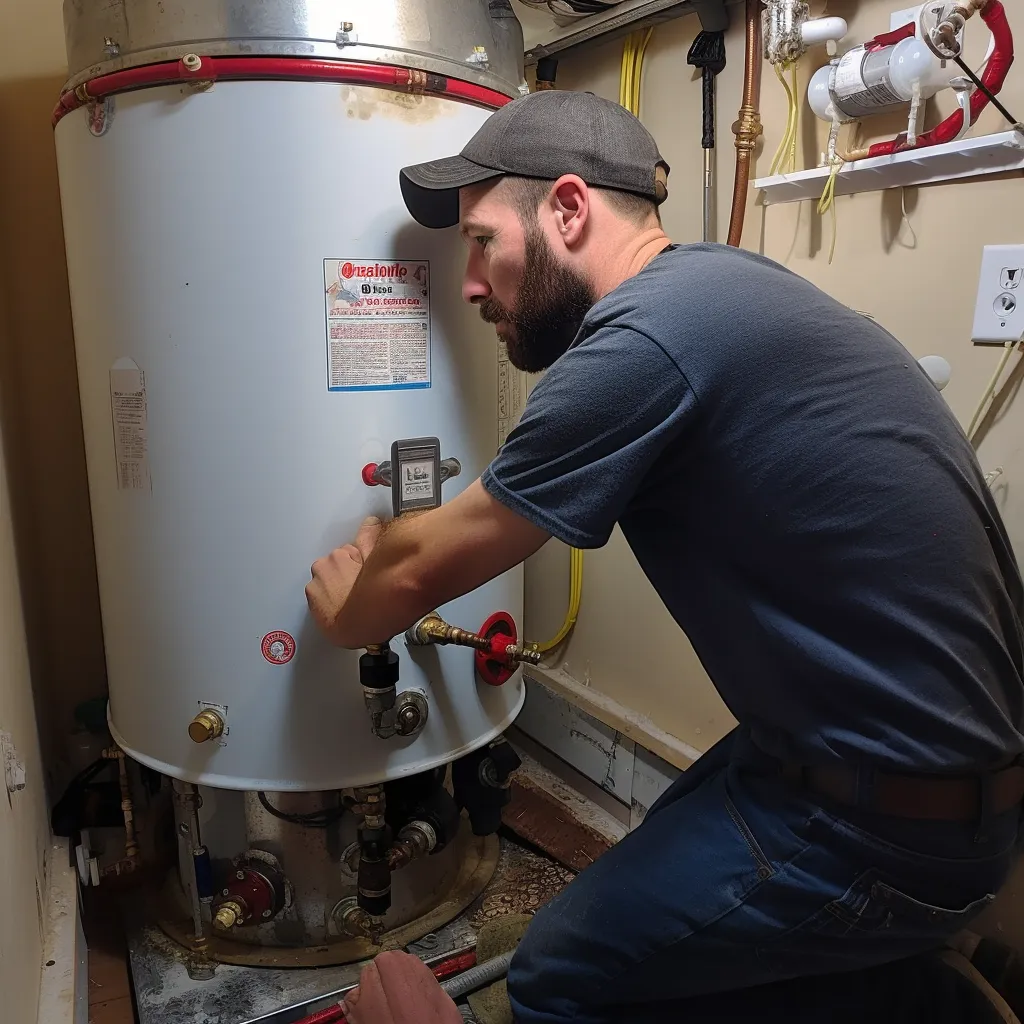
Tankless Water Heaters
Tankless water heaters provide a modern and efficient alternative to traditional water heaters. Unlike tank-style models that continuously store and heat water, tankless units heat water on demand. This approach saves energy and frees up valuable space in your home. Although the upfront cost of a tankless water heater may be higher, the long-term savings on utility bills compensate for it. With their energy-saving benefits, tankless water heaters offer a more eco-friendly and cost-effective solution for meeting your hot water needs.
Pros:
Easy installation: Tankless water heaters have a compact design, making installation straightforward and flexible. They require less space compared to tank-style water heaters, allowing for more versatile placement options.
High energy efficiency: Tankless water heaters are highly energy-efficient, as they heat water on demand rather than continuously heating and storing it. This results in consistently low monthly energy bills and reduces energy waste.
Continuous hot water supply: With a tankless water heater, you won't run out of hot water as long as there is demand. The unit heats water instantly, providing a continuous supply of hot water whenever you need it.
Longer lifespan: Tankless water heaters generally have a longer lifespan compared to traditional tank-style water heaters. This makes them a smart and economical investment, as they can provide reliable hot water for many years, potentially reducing replacement and maintenance costs over time.
Cons:
Higher initial cost: Tankless water heaters typically have a higher upfront cost compared to traditional tank-style water heaters. The initial investment may be higher, which can be a consideration for those on a tighter budget.
Venting complexities: Tankless water heaters require proper venting to ensure safe operation. In small or confined spaces, venting complexities may arise, requiring additional installation considerations and potential modifications to accommodate the ventilation requirements.
Limited capacity for high-demand applications: While tankless water heaters provide a continuous supply of hot water, they have a limited capacity for high-demand applications. If multiple hot water outlets are used simultaneously, such as showers, laundry, and dishwashing, the unit may struggle to meet the demand, resulting in reduced water flow and temperature.
Heat Pump Water Heaters
Heat pump water heaters are highly regarded for their exceptional efficiency and cost-effectiveness in heating water. These units utilize a small compressor to extract heat from the surrounding air, making them an energy-efficient option. The remarkable aspect is that they can provide hot water without consuming a significant amount of energy, resulting in substantial cost savings over time.
Pros:
Energy efficiency: Heat pump water heaters are highly energy-efficient, using less energy to heat water compared to traditional water heaters. This can result in reduced utility bills and long-term cost savings.
Renewable energy utilization: These water heaters harness renewable energy from the air, making them a more sustainable and environmentally friendly option. By utilizing heat from the air, they reduce reliance on non-renewable energy sources.
Continuous hot water: Heat pump water heaters often have a backup heating element or storage tank, allowing them to provide hot water even during power outages. This ensures a continuous supply of hot water for your household needs, regardless of power disruptions.
Cons:
Higher initial cost: Heat pump water heaters typically have a higher upfront cost compared to traditional water heaters. The initial investment may be higher, which can be a consideration for those on a tighter budget.
Ventilation and space requirements: Heat pump water heaters may require additional ventilation and adequate space for installation. This is to ensure proper airflow and efficient operation, which may require modifications to your existing setup.
Limited capacity: Heat pump water heaters may have a limited capacity for providing hot water. If there is a high demand for hot water, such as multiple showers running simultaneously or high-volume hot water usage, the unit may struggle to meet the demand, resulting in reduced water flow and temperature.
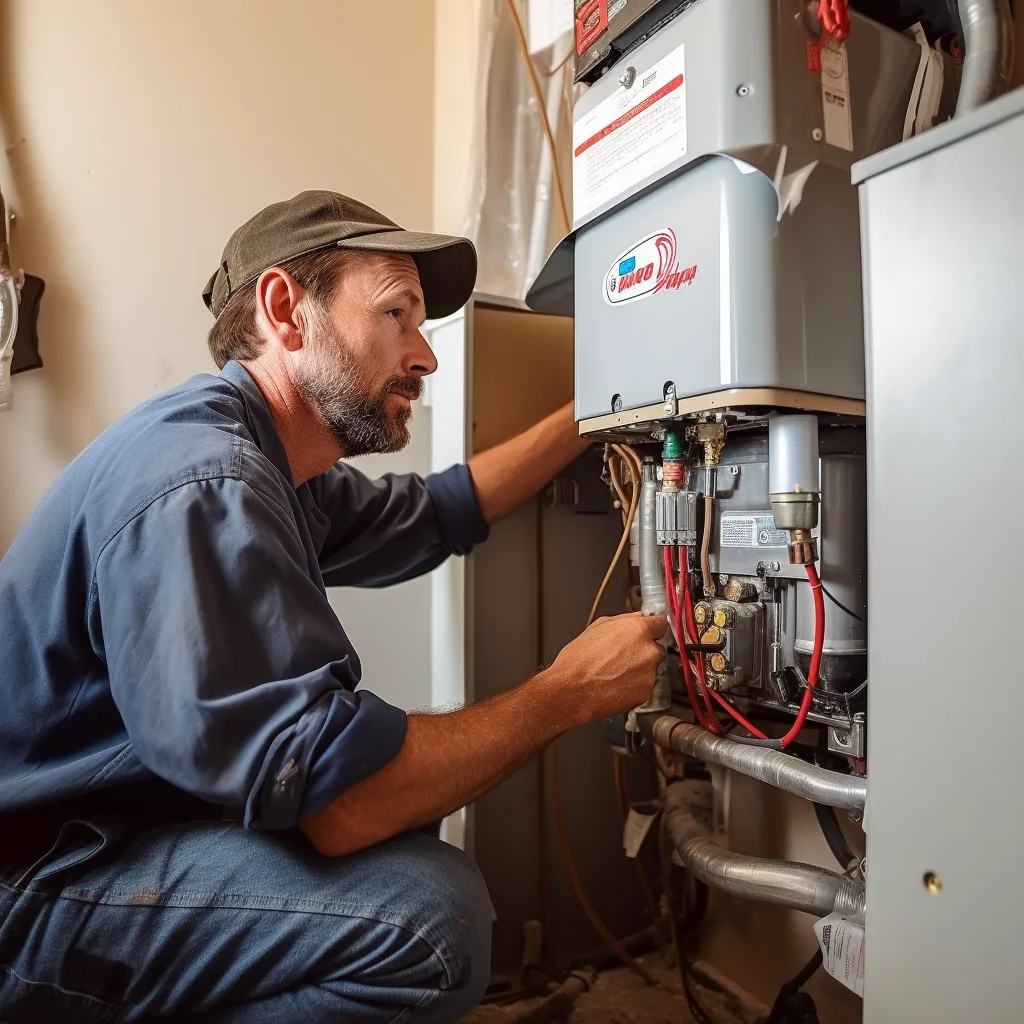
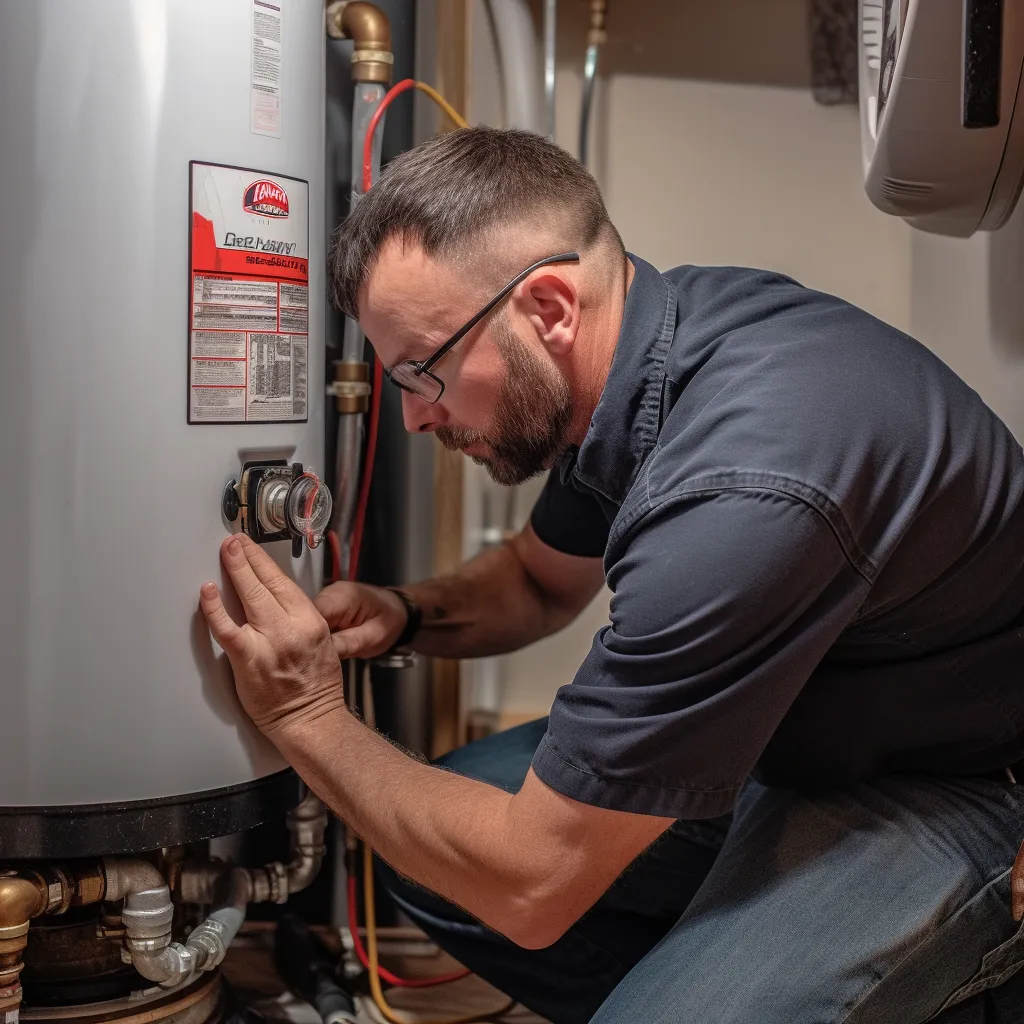
Heat Pump Hybrid Water Heaters
Heat pump hybrid water heaters combine the benefits of conventional storage tank water heaters and heat pump systems. They offer high efficiency and lower operating costs compared to traditional models, making them a worthwhile choice despite the higher initial investment.
Pros:
Increased energy efficiency: Heat pump hybrid water heaters are highly energy-efficient, leading to reduced utility bills compared to traditional storage tank heaters. They utilize heat pump technology to extract heat from the surrounding air, minimizing energy waste.
Renewable energy utilization for sustainability: These water heaters harness renewable energy from the air, making them a more sustainable and environmentally friendly option. By reducing reliance on non-renewable energy sources, they contribute to a greener lifestyle.
Hot water availability during power outages: Heat pump hybrid water heaters often have a backup heating element or storage tank, allowing them to provide hot water even during power outages. This ensures continuous hot water availability for your household needs, regardless of power disruptions.
Longer lifespan: Heat pump hybrid water heaters generally have a longer lifespan compared to traditional storage tank heaters. This means you can enjoy reliable hot water for a longer period, potentially reducing replacement and maintenance costs over time.
Cons:
Higher initial cost: Heat pump hybrid water heaters generally have a higher upfront cost compared to conventional storage water heaters. The initial investment may be higher, which can be a consideration for those on a tighter budget.
Potential ventilation and space requirements: Heat pump hybrid water heaters may require additional ventilation and adequate space for installation. This is to ensure proper airflow and efficient operation, which may pose challenges in some installation scenarios.
Limited capacity: Heat pump hybrid water heaters have a finite amount of hot water available for each use. If there is a high demand for hot water, such as multiple showers running simultaneously or high-volume hot water usage, the unit may struggle to meet the demand, resulting in reduced water flow and temperature.
Risk of water damage: As with any water heater, there is a risk of water damage if the tank fails or develops leaks. Proper maintenance and monitoring are necessary to mitigate this risk and address any issues promptly.
Solar Powered Water Heaters
Solar-powered water heaters offer an excellent opportunity to lower monthly utility bills and harness renewable energy from the sun. There are two main types available: active and passive systems. Both types work by utilizing the sun's energy to heat stored water, providing a straightforward and cost-effective method to save money on energy expenses. By opting for a solar-powered water heater, you can enjoy the benefits of reduced energy costs while embracing a more sustainable and environmentally friendly approach to heating water in your home.
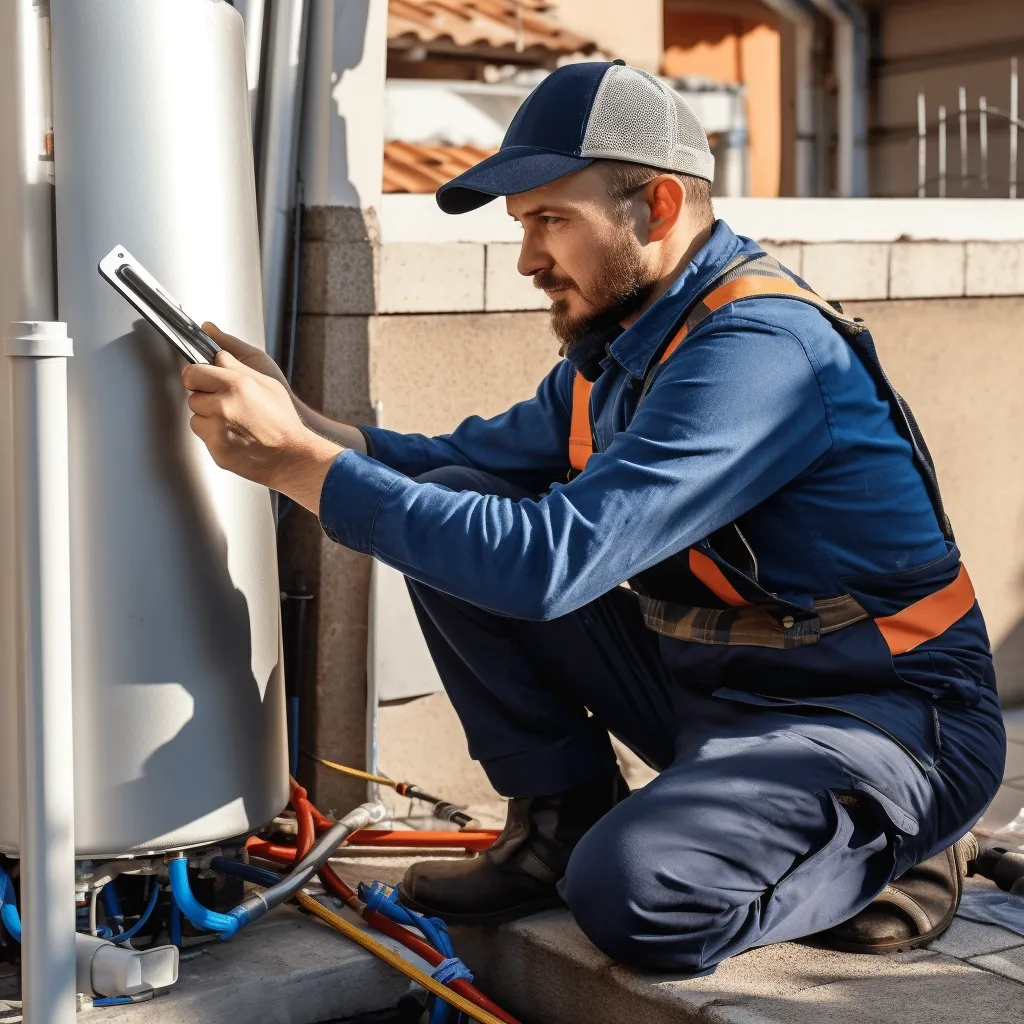
Active Systems:
Active solar-powered water heaters utilize pumps to transfer hot fluid from the solar collectors to a storage tank, ensuring a steady supply of hot water for future use. These systems are highly efficient and capable of generating significant amounts of hot water. By utilizing active solar-powered water heaters, you can optimize the collection of solar energy and enjoy an ample supply of hot water to meet the needs of your household.
Passive Systems:
Passive solar water heaters operate by utilizing natural convection to transport heated fluid from the collectors to a storage tank, harnessing solar power to heat the water. These systems are known for their low installation and maintenance costs. While passive solar water heaters may not provide as much hot water as active systems, they offer a cost-effective and environmentally friendly option for utilizing solar energy to meet your hot water needs. With their simplicity and affordability, passive solar water heaters are an attractive choice for those looking to embrace solar energy and reduce their reliance on traditional heating methods.
Pros:
High efficiency and cost savings on energy bills.
Utilization of renewable energy from the sun.
Longer lifespan compared to traditional water heaters.
Cons:
Higher initial cost compared to traditional storage tank heaters.
Additional space and equipment requirements for installation.
Risk of water damage if solar panels become faulty or damaged.

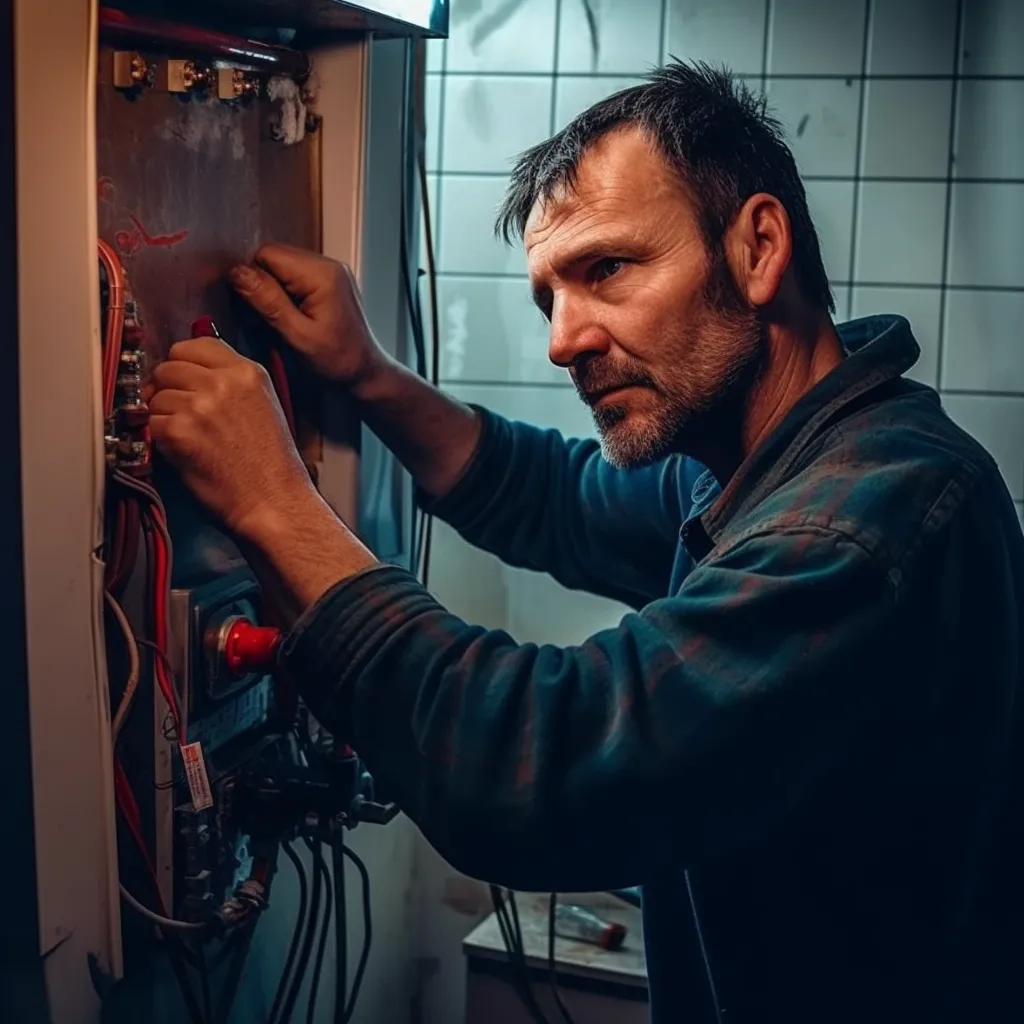
Point-of-Use Water Heaters
Point-of-use water heaters offer the convenience of on-demand hot water in a compact and efficient system. They are well-suited for small spaces or for those looking to avoid the costs and inefficiencies associated with traditional storage tank water heaters. By delivering hot water directly at the point of use, these heaters eliminate the need for long pipe runs and minimize heat loss. With their compact size and efficient operation, point-of-use water heaters provide a practical solution for meeting hot water needs in specific areas of your home.
Pros:
High energy efficiency, resulting in lower utility expenses.
Compact size, allowing for easy installation in small spaces.
Longer lifespan compared to storage tank heaters.
Cons:
Higher initial cost and potential need for extra ventilation and installation space.
Lower hot water capacity, leading to limited availability per use.
Higher risk of water damage due to tank failure or leaks in tankless heaters.
Water Heaters With Hydronic Boilers
Hydronic boilers are a highly efficient heating system that uses water to circulate heat throughout your space, offering an alternative to air-based heating systems. They can provide hot water for domestic use and space heating, making them well-suited for colder climates. Hydronic boilers can also be paired with tank water heaters to provide hot water more affordably. With their efficiency and versatility, hydronic boilers offer a reliable and cost-effective solution for heating your home and meeting your hot water needs.

Pros:
High efficiency, leading to lower monthly utility bills.
Ability to provide both space heating and domestic hot water.
Compact design for easy installation in tight spaces.
Longer life expectancy compared to traditional tank water heaters.
Cons:
Higher initial cost compared to traditional storage models.
Limited capacity, resulting in a lesser amount of hot water available per use.
Possibility of noise generation during operation.
Potential ineligibility for certain utility rebates or incentives.
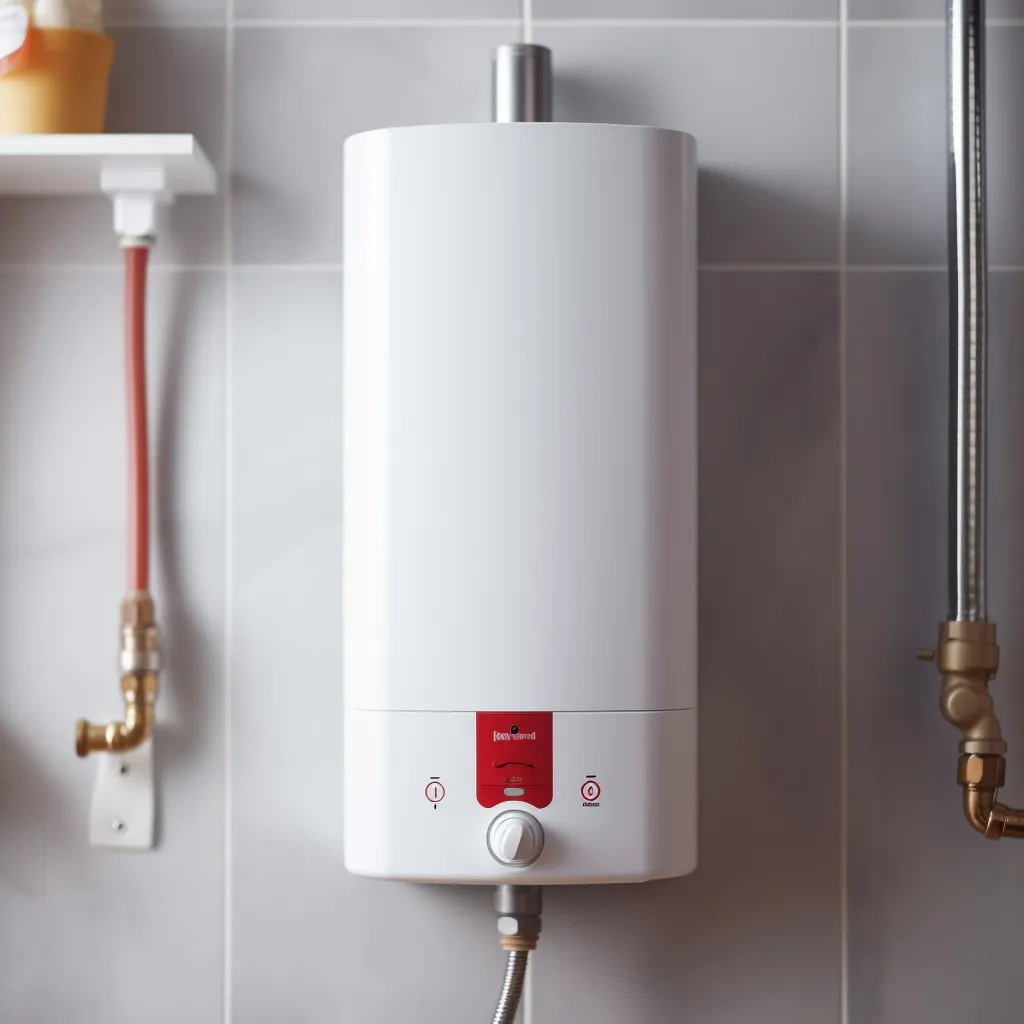
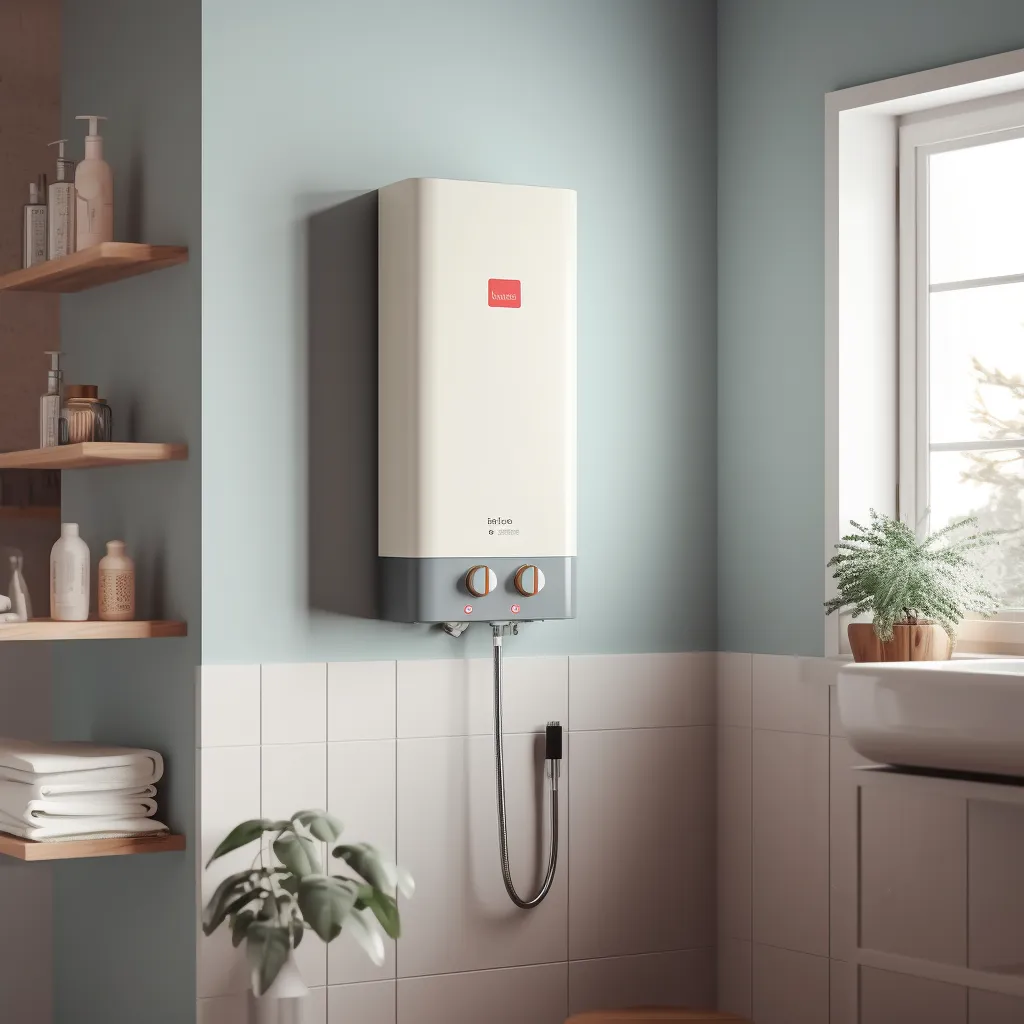
Smart Water Heaters
Upgrade your water heating system with smart water heaters, the latest technology for efficient hot water production. Smart water heaters come equipped with Wi-Fi enabled thermostats, allowing you to conveniently manage your hot water consumption and expenses from anywhere. With the ability to control temperature settings and customize them according to your needs, all through your smartphone, you have complete control over your hot water system. Enjoy the convenience and energy savings that smart water heaters offer as you optimize your hot water usage with ease.
Pros:
Remote control via Wi-Fi enabled thermostat, allowing convenient management of the water heater from smartphones or other devices.
Energy-saving modes, such as vacation mode, help reduce monthly energy bills.
Compact size facilitates easy installation and maintenance, even in tight spaces.
Longer life expectancy compared to traditional storage tank heaters.
Cons:
Higher cost compared to traditional storage water heaters.
Limited availability of utility rebates or incentives for smart water heaters.
Potential need for software updates to ensure compatibility with newer devices.
Potential security risks if the Wi-Fi connection is not properly secured.

Condensing Water Heaters
Condensing water heaters are a combination of tankless and conventional storage tank water heaters, offering a unique blend of benefits. These innovative models use advanced technology to extract heat from exhaust gases, maximizing efficiency and resulting in cost savings. By capturing and utilizing heat that would typically be wasted, condensing water heaters deliver superior performance and increased energy efficiency compared to traditional models. With their ability to optimize energy usage, condensing water heaters are a smart choice for those seeking improved efficiency and cost savings in their water heating system.
Pros:
High energy efficiency, reducing utility bills.
Longer lifespan compared to traditional tanks.
Hot water availability during power outages.
Cons:
Higher initial cost compared to traditional tank water heaters.
Space and ventilation requirements for installation.
Limited hot water capacity, which may not be sufficient for high-demand situations.
Risk of water damage in the event of tank failure or leakage.
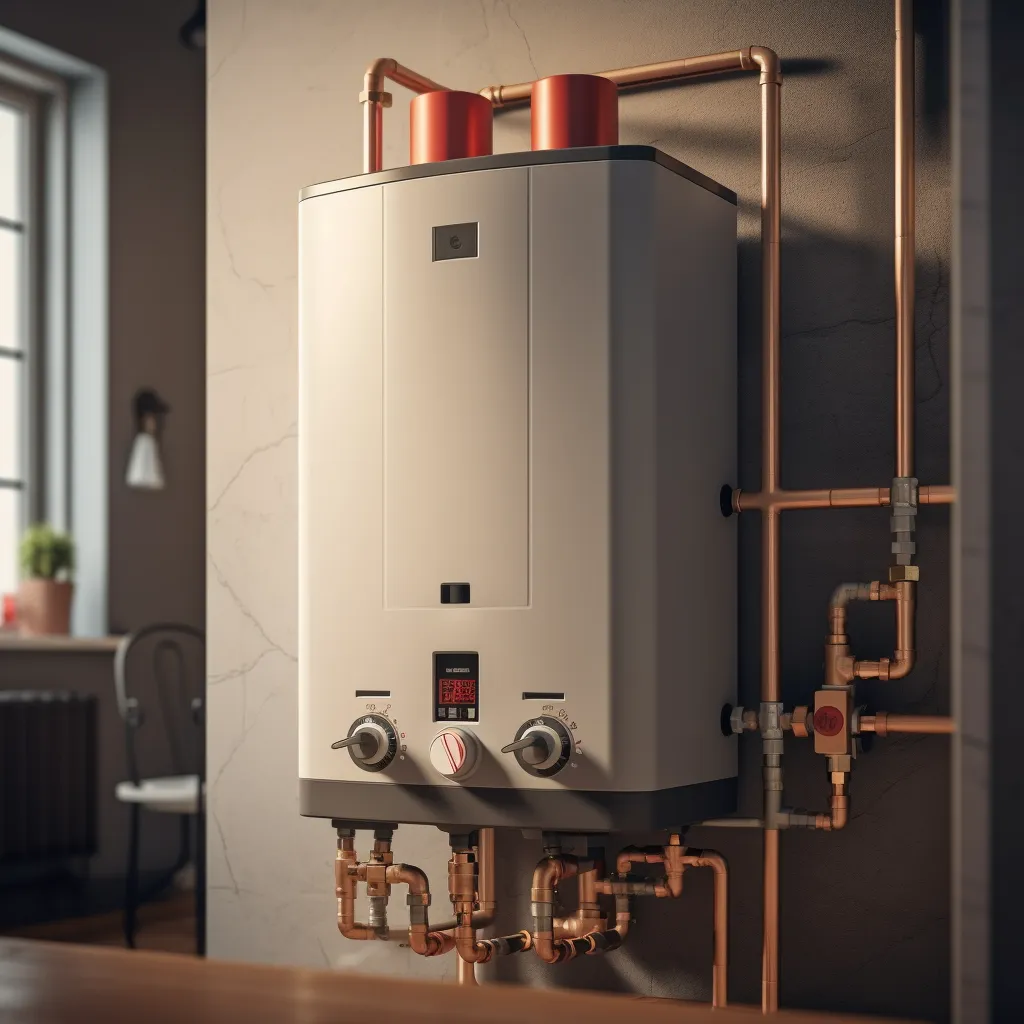
How to choose the right
water heater for your home
Choosing the right size water heater is crucial to ensure an adequate supply of hot water while avoiding unnecessary costs and space utilization. A water heater that is too small may result in insufficient hot water for your needs, while an oversized one can be inefficient and wasteful. To determine the ideal water heater size for your family, consider your lifestyle and daily hot water usage. By selecting the appropriate size, you can enjoy affordable home comfort and a plentiful supply of hot water that meets your requirements.
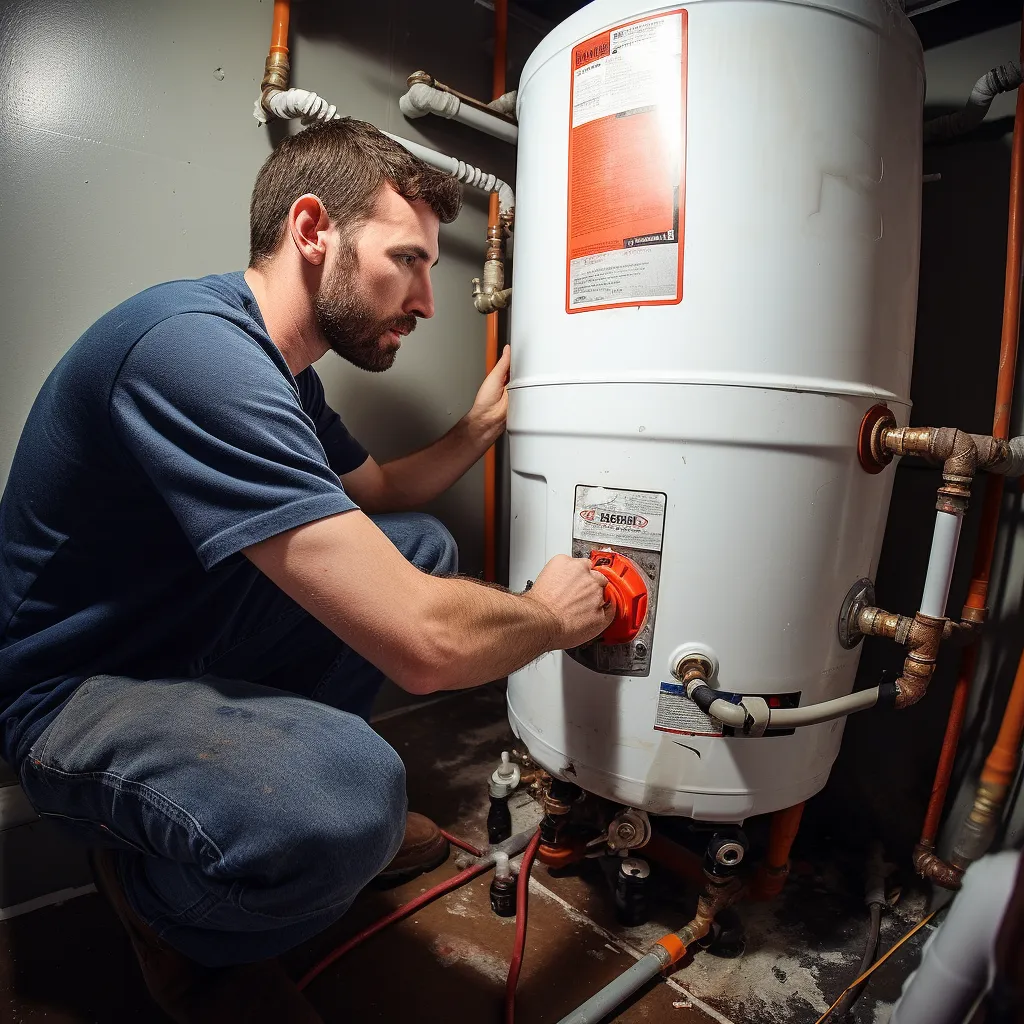
When should you
replace your water heater?
A properly functioning water heater is essential for the smooth operation of your home's plumbing system, delivering hot water for daily tasks like showering, dishwashing, and laundry. Typically, water heaters have a lifespan of around 10-15 years. If your water heater has reached or exceeded this lifespan, it's a good idea to start considering a replacement. Upgrading to a newer model ensures a dependable supply of hot water and helps prevent potential issues and expensive repairs associated with an aging unit. Investing in a new water heater will provide peace of mind and ensure continued efficiency in your home.
You know it may be time to replace your water heater when you see these signs...
Tank leakage.
Strange noises.
Discolored and rusty hot water.
Lack of hot water.
Fluctuations in water temperature.
High energy bills.
While installing a new water heater can be expensive, the long-term benefits of improved energy efficiency and reliable performance make it a worthwhile investment. A licensed plumber can assess your needs, recommend the right type and size of water heater, and ensure proper installation for optimal efficiency and durability. By making this investment and relying on professional help, you can enjoy the advantages of a more efficient and dependable water heating system in your home.
Maintenance tips for
an energy-efficient water heater
Regularly maintaining your water heater is crucial to prevent problems and maintain its efficiency. By following simple maintenance routines, you can ensure your water heater operates smoothly and enjoy cost-effective and dependable hot water.
The Benefits of Hiring a Licensed Plumber to Replace Your Water Heater
When deciding whether to replace your water heater, you might be tempted to tackle the task on your own. However, there are several advantages to hiring a professional plumber that you should consider.
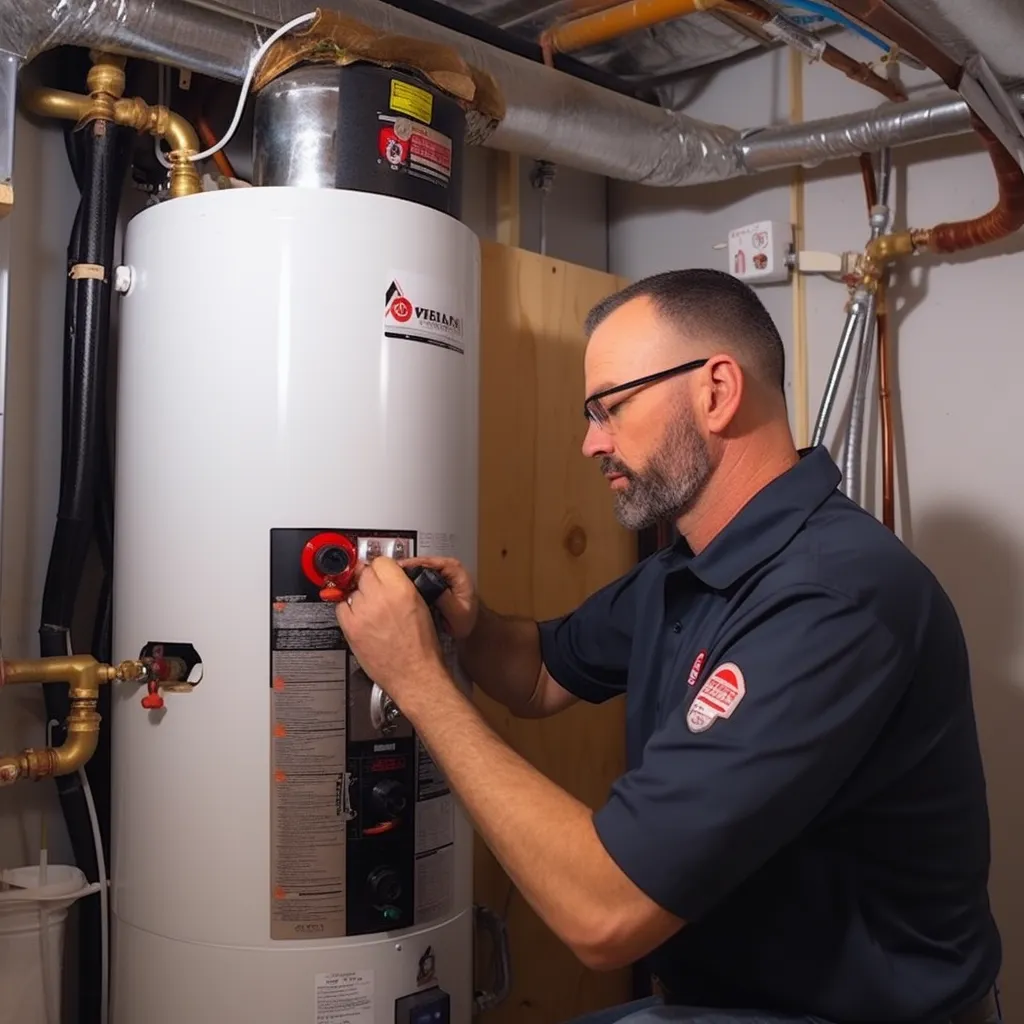
Licensed plumbers have the necessary training and knowledge to safely and efficiently install a new water heater. They can provide expert advice on the best type and size of water heater for your specific needs.
Licensed plumbers ensure that your water heater installation meets all local building codes and safety standards, giving you peace of mind that the job is done correctly and safely.
Professionals can quickly identify and address any issues that may arise during the installation process. Their experience allows them to handle unexpected challenges and ensure a smooth and successful installation.
Plumbers have access to the necessary tools and equipment required for water heater installation. This ensures that the job is carried out effectively and efficiently, saving you time and effort.
When it comes to water heater replacement, hiring a licensed plumber can offer numerous benefits that save you time, money, and help you avoid potential issues.
Contact Us
GET IN FULL TOUCH
PHONE: (267) 715-3102
EMAIL:
tyler@waterheatersphiladelphia.com
Water Heaters Philadelphia
Philadelphia, PA 19147
